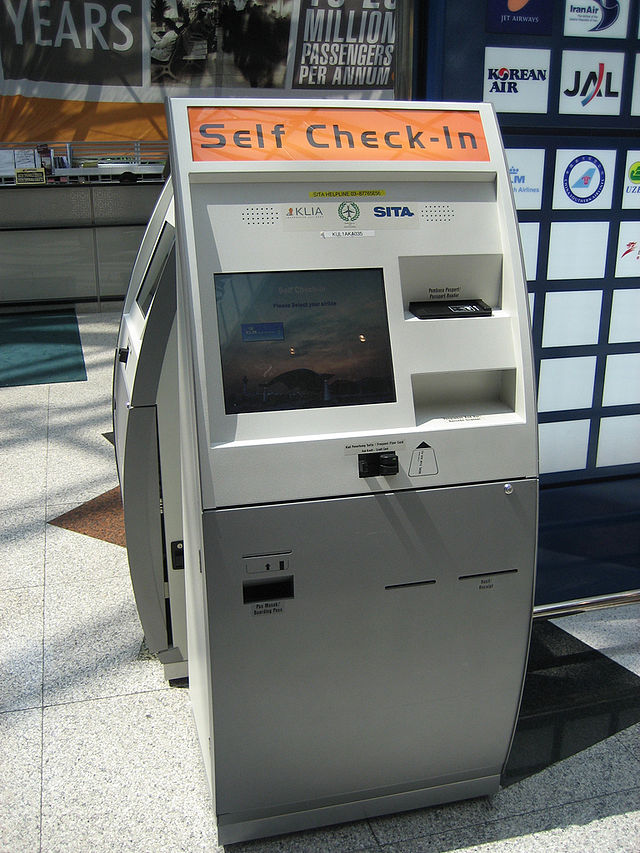Common-use self-service
Self check-in kiosk for airlines From Wikipedia, the free encyclopedia
Common-use self-service or CUSS is a shared kiosk offering airport check-in to passengers without the need for ground staff. The CUSS can be used by several participating airlines in a single terminal.[1]

The first major installation of CUSS for multiple airlines was launched in 2003 in a cooperative project between LAS McCarran Airport, ARINC and twelve participating airlines. British Airways, Singapore Airlines, Royal Dutch KLM and Lufthansa[citation needed] By the end of 2008, CUSS had been implemented at more than 100 airports globally.[1]
Benefits
Passengers
CUSS can provide easier and faster passenger passage through the airport, due to less queues. CUSS kiosks can be shared by multiple airlines and are located throughout the airport,[1] ranging from car parks to transit areas, thus cutting down airport crowds.[2]
Airline and airports
Economically, CUSS reduces the labour cost of ground staff required by manual check-in. With the introduction of CUSS, the check-in area at the airport can be reduced to enable more retail outlets, or entertainment facilities.[citation needed] Based on IATA studies, a 40% market penetration of self-service check-in will save $US1 billion per year.[3] CUSS can be implemented in the cloud, optimising resource usage and support overheads, that eliminates the need for servers, core computing space and costly technical manpower.[4]
References
External links
Wikiwand - on
Seamless Wikipedia browsing. On steroids.
